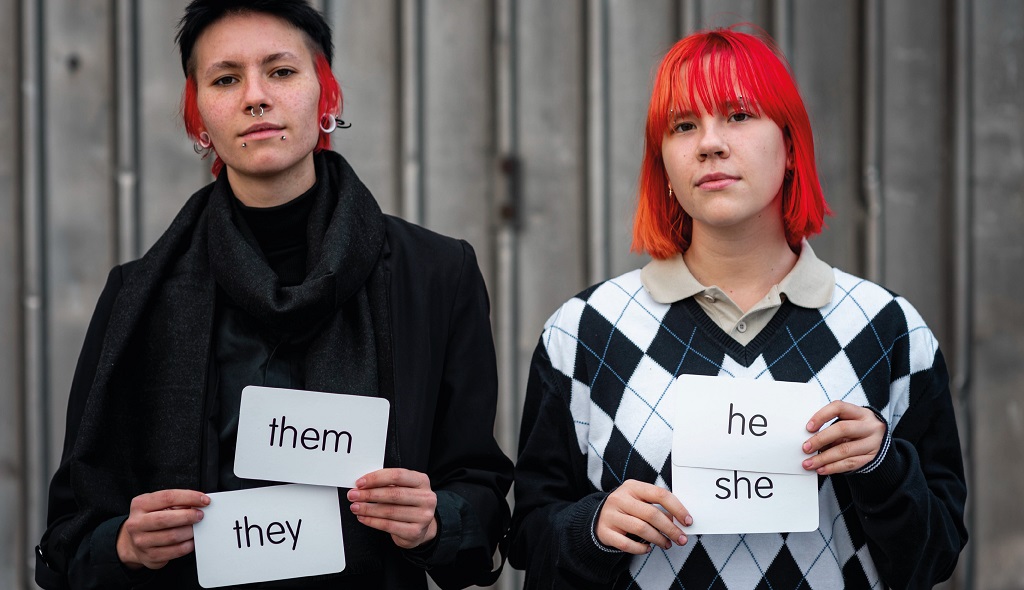An international debate has broken out surrounding how to make our language choices more inclusive. While some are pushing back against modernizing language to be more inclusive when it comes to gender — most notably the French — others are more willing to adapt.
In May of 2021, France’s education minister, Jean-Michel Blanquer, announced a ban would be placed on the use of writing methods designed to make the French language more gender-neutral in schools. While not all may agree with this firm stance, there is no denying that adapting certain languages like French to be inclusive poses more of a challenge than it does in the English language. Let’s examine why the English language is easier to adapt to gender neutrality.
How Language Structure Comes into Play

From the start, English has the upperhand when it comes to making changes towards inclusivity. Most European languages assign genders to nouns, whereas English nouns are typically genderless. This lack of gendered nouns gives English speakers a major headstart when it comes to making their language choices more inclusive. While pronouns are often assigned a gender in English (she/her/hers and he/him/his), in many cases you can swap in the gender neutral pronouns they/them/theirs. Even though the use of they/them/theirs isn’t quite grammatically correct every time one is used as a gender neutral option, these word choices can feel more natural to implement since they are already a part of English speakers’ daily vocabularies.
Other languages that place more of an emphasis on gender, such as Spanish, don’t necessarily have gender-neutral alternatives at their disposal. For example, some Spanish speakers are beginning to use the term “Elle” instead of “Ella” (feminine) or “él” (masculine) as a gender-neutral replacement. Because this term is so new and not exclusively accepted as an official word, there is still pushback by those who don’t want to switch to a more inclusive language.
Cultural Differences
How a culture feels about language can also make the transition to gender neutral language easier. English is a more casual language where it’s usually okay to refer to people by their name. This eliminates the need to define their pronouns ahead of time. In some other languages, using someone’s name instead of their pronoun is considered rude. When language choices can have a deep impact on your social interactions and relationships, making gender neutral language choices can require more careful navigation.
Arguments for Both Sides
As can be expected, the gender neutral language movement in the English language speaking community has both supporters and detractors. Supporters tend to argue that the use of gender-specific language often implies male superiority and can reflect an unequal society. Some supporters also express concern around the impact gendered language can have on children, as they believe the words children are exposed to can affect their perceptions of the gender-appropriateness of certain careers which can limit the career paths some women pursue when they enter the workforce. For example, using the term firefighter instead of fireman is much more inclusive. The same theory applies to policemen versus police officers. Using the gender neutral alternative makes it so women can more easily see themselves in these roles.
On the opposing side, critics worry that these changes can lead to awkward and grating language constructions. For example, while those in support of making the English language more inclusive feel the use of the word “human” can be used instead of “man” or “they”, critics fear these replacements will make the English language less elegant and more confusing.
How to Make Language More Inclusive

For instances where the noun is not gender neutral by default, there are new options arising for those looking to incorporate more inclusive language into conversations and written text. Alongside using they/them/theirs when looking to avoid using gendered pronouns, here are some examples of English words that are gendered and how you can work around them for the sake of inclusivity.
- Use “Mx” in lieu of Mr, Ms, Mrs, or Miss
- Use “partner” in lieu of husband, wife, boyfriend, or girlfriend
- Use “sibling” in lieu of sister or brother
- Use “child” instead of son or daughter









